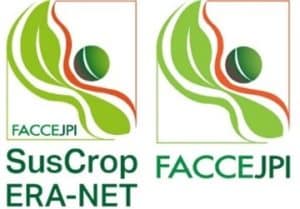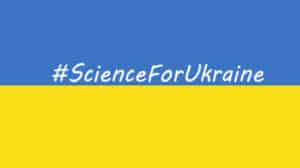NEWS
Stay updated on the latest developments in plant science policy and EPSO activities!
On 4 November 2021 EPSO member-scientists and policy makers from seventeen countries across Europe held the fifth informal meeting to assess the situation for research and development on New Plant Breeding Technologies (NPBTs) after the ruling of the ECJ in July 2018.
They exchanged views on the current situation of genome editing (GE) in Europe and possible next steps to enable Europe to better address climate change, achieve food and nutritional security, and establish a sustainable agriculture in Europe and world-wide. Such steps should bring the discussion forward on the EU legislation and facilitating potential flagships. The meeting was held under Chatham House Rules.
The next meeting will be held in May 2022.
EPSO offers to collaborate with policy makers to develop an appropriate future-ready regulation to enable the European public sector, small- and medium-sized companies and farmers to contribute more comprehensively to food and nutritional security and to use all available tools to reduce the environmental impact of agriculture. Notwithstanding the technical option retained, EPSO supports a science-based revision of the present European legislation establishing a more proportionate product-based risk assessment. EPSO is also willing to contribute to the societal debate on genome editing and to communicate in a fact-based and yet accessible manner about innovative plant science and its societal role.
Ralf Wilhelm, Jens Sundstrom, Alan Schulman and Karin Metzlaff
Contacts:
- Ralf Wilhelm & Jens Sundstrom, EPSO Chairs WG Agricultural Technologies
- Alan Schulman, EPSO President
- Karin Metzlaff, EPSO Executive Director
The call aims to generate knowledge on how agrobiodiversity can improve resilience of agroecosystems, especially those most at risk, reinvigorate farming practices to increase ecological connectivity and improve biodiversity at landscape level, and to monitor and identify the opportunities and obstacles to diversification.
Proposals submitted to the Call must address one of the three following topics:
1) Agricultural genetic resources: it includes research aiming to broaden the genetic base of crops to improve functional traits fit to sustainable food systems, and to increase tolerances to environmental conditions related to the climate change.
2) Agricultural practices and farm models: it includes research leading to new agricultural practices, technologies, decision support systems and business models that improve agricultural production and soil quality, creating economic, social, and environmental value through greater diversity of plant species and wider functional and response diversity.
3) Agrobiodiversity and territorial systems: it includes research leading to an increased agrobiodiversity at landscape level contributing also to the regeneration of low-quality agricultural habitats, to the enhancement of ecological connectivity and to a better understanding of the links between farm diversity and landscape complexity.
See the Announcement for timeline and participating countries.
The registration area for consortium coordinators is now open. After registration of the coordinator, the coordinator can invite/add partners through the coordinator account.
The deadline for pre-registration of proposals is May 4, 12:00h CEST.
The deadline for proposal submission is June 22, 12:00h CEST.
The link for the webinar for applicants on 5th of April 2022 will be published soon on the submission homepage.
Read the full EPSO SusCrop news item
Contacts:
- Christian Breuer, +49 2461 61 96929
- Ulrike Ziegler, +49 2461 61 5566
- Diane Drescher-Petersen, +49 2461 61 9454
In the last weeks, we have witnessed the incomprehensible and unimaginable descend on Europe for the first time in more than 80 years: an unprovoked, brutal, full-scale war on one of the European family of nations, Ukraine, and its people by its neighbour, the Russian Federation.
As you see in our statement form 28.2.2022, while violating several international treaties securing Ukraine’s border, the Russian Federation also violates international law.
We as scientists wish to contribute to building a better Europe and world. At this critical moment, our immediate goal is to do our best to alleviate the suffering we are witnessing daily in Ukraine.
Concrete actions you as scientists can take:
- Add positions for Ukrainians on a google sheet which was started by Andrew Kern, University of Oregon. It already became very large and is well distributed in the Ukrainian networks. It is supported by EPSO, GPC, DBG, ASPB, Australian colleagues and many others spreading it far and wide.
At the link https://docs.google.com/spreadsheets/d/1jGFCqP2kj1ZAN6xy6EoRN1bozaggk9VEsbzYaIkkYcQ/htmlview#gid=0 you are redirected:
To add a new lab to this list, use this form https://docs.google.com/forms/d/e/1FAIpQLSeRGe5Da_b6GGyC6VT7CLGViGs06SzeuX7wRKpC4K5tnvlhgg/viewform
For UKR scientists to find labs, use this search list
- Use #ScienceForUkraine for the European group of volunteers to add your actions to the assembled resource they create for UKR.
- Offer free accommodation for Ukrainian refugees fleeing war on the website https://www.ukrainetakeshelter.com/ launched in 12 languages by Avi Schiffmann and Marco Burstein (Harvard students)
- Retweet @EPSOEurope 17.3.2022 to spread the link with labs and accommodation.
The EPSO Board and Executive Director on behalf of the EPSO members
Click here to read: Full ‘EPSO UKR statement’ from 28.2.2022
Contacts:
- Alan Schulman, EPSO President
- Marie-Theres Hauser, EPSO Board
- Przemysław WOJTASZEK, EPSO Board
- Karin Metzlaff, EPSO Executive Director
The EPSO Working Group on Plants and Microbiomes has the pleasure to announce its fourth workshop to take place online on 8 April 2022, 10:00 – 16:15.
This fourth workshop has two aims. First, we will hear highlights from (multi-)national plants and microbiomes research and innovation from our Working Group members. Second, we will discuss in more detail two themes which need further elaboration by the Working Group: ‘Research infrastructure’, including common repository for culture collections, EU phenotyping platforms, and metabolomics; and ‘Databases’ for microbiome data – and provide advice to Horizon Europe and (multi-)national research strategies.
The meeting intends to increase collaborations between the working group members, particularly regarding research infrastructure and databases.
Recommendations from the workshop will be provided to the scientific community, the European Commission and national agencies.
We kindly ask you to register for your participation by e-mail to Corné [email protected] by 15 March 2022.
Registered participants will receive the final programme and the zoom link on 29th March.
We look forward to e-meeting you in April!
Corné Pieterse, Angela Sessitsch, Paul Schulze-Lefert and Karin Metzlaff
Click here to read: The workshop Draft Programme 10.03.2022
Contacts:
Corné Pieterse, Angela Sessitsch, Paul Schulze-Lefert and Karin Metzlaff
The call aims to generate knowledge on how agrobiodiversity can improve resilience of agroecosystems, especially those most at risk, reinvigorate farming practices to increase ecological connectivity and improve biodiversity at landscape level, and to monitor and identify the opportunities and obstacles to diversification.
Proposals submitted to the Call must address one of the three following topics:
1) Agricultural genetic resources: it includes research aiming to broaden the genetic base of crops to improve functional traits fit to sustainable food systems, and to increase tolerances to environmental conditions related to the climate change.
2) Agricultural practices and farm models: it includes research leading to new agricultural practices, technologies, decision support systems and business models that improve agricultural production and soil quality, creating economic, social, and environmental value through greater diversity of plant species and wider functional and response diversity.
3) Agrobiodiversity and territorial systems: it includes research leading to an increased agrobiodiversity at landscape level contributing also to the regeneration of low-quality agricultural habitats, to the enhancement of ecological connectivity and to a better understanding of the links between farm diversity and landscape complexity.
See the Pre-Announcement for timeline and participating countries.
The Call will be published in March 2022 at https://www.suscrop.eu/2022-joint-call.
The link for the webinar for applicants on 5th of April 2022 will be published on the submission homepage.
Read the full EPSO SusCrop news item
Contacts:
- Christian Breuer, +49 2461 61 96929
- Ulrike Ziegler, +49 2461 61 5566
- Diane Drescher-Petersen, +49 2461 61 9454
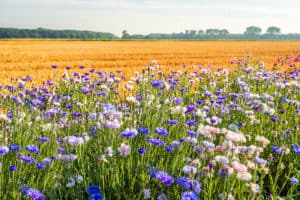
Copyrights 2019 Ruud Morijn – Netherlands
The 11th European-wide seminar of the series supported by the European Plant Science Organisation (EPSO) and aimed at the Plant Science community and its stakeholders.
TTT: The seminar will be held online each third Thursday of the month at three (CET).
On 17th March 2022 at 15:00 (CET) we will present three talks exploring “Plants and Microbiomes”
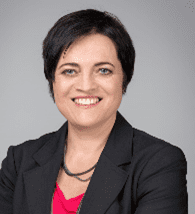

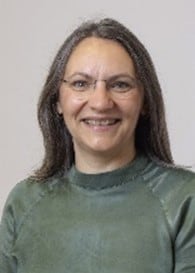
The seminars will be hosted on Zoom and last approximately 1.5 hours. Numbers will be limited to 300 attendees and therefore please register early if you would like to join. There will be ample opportunities to ask questions and join the debate. So please join us to support this new and exciting initiative for European Plant Science by following this link just prior to the start of the seminar.
EPSO members register in advance for this meeting:
https://zoom.us/meeting/register/tJItcuutqD4qGtwtR8N-DSTvABFoKcjbgVrG
After registering, you will receive a confirmation email containing information about joining the meeting.
In the coming months we will be on the lookout for talented plant scientists among the EPSO membership to present their findings and perspectives to the EPSO seminar series. If we approach you to talk, we hope you will be happy to support the initiative. This is a fantastic opportunity for both eminent world leaders and talented up-and-coming early career researchers to present their research to an international audience and to network with potential collaborators. If you wish to suggest a theme for one of the autumn seminars and / or nominate yourself or one of your colleagues to give a seminar, we most welcome your suggestions. Please contact Tim George ([email protected]) to provide your name and potential talk title.
We look forward to seeing you all for the 11th EPSO seminar on the 17th March 2022
Tim George, Alan Schulman and Marie-Theres Hauser
EPSO Plant Science Seminar Series Organising Committee
Click here to read: Full EPSO news item
Contacts:
- Tim George, Hutton / UK & EPSO Board
- Alan Schulman, LUKE / FI & EPSO President
- Marie-Theres Hauser BOKU / AT & EPSO Board
